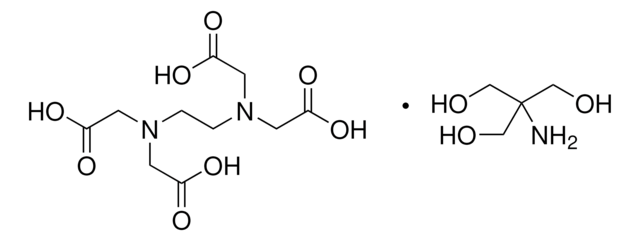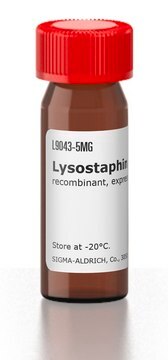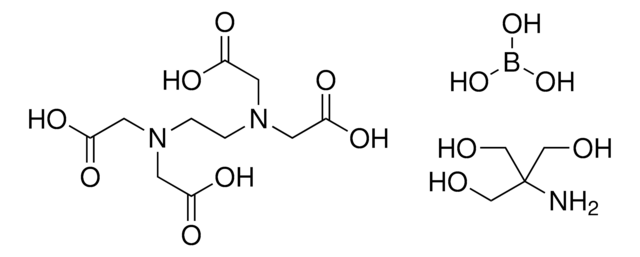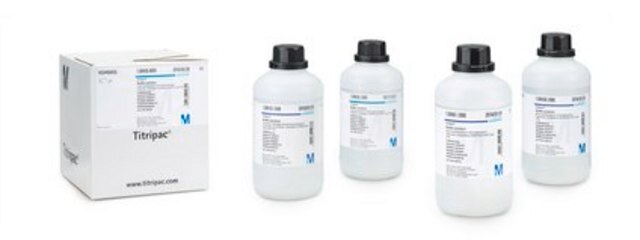8890-OP
TE Buffer Solution pH 8.0
Synonym(s):
1X TE buffer, Tris EDTA buffer
Sign Into View Organizational & Contract Pricing
All Photos(1)
About This Item
UNSPSC Code:
41105319
NACRES:
NA.21
Recommended Products
General description
1X TE Solution, pH 8.0 (10mM TRIS-HCl, 1mM EDTA). Molecular Biology grade.
Specifications:
Conductivity at 25°C: 775-975 µmho
DNase: None detected
pH of solution at 25°C: 7.90-8.10
Protease: None detected
RNase: None detected
Intended for laboratory and manufacturing use only. Not for drug, food, or household use.
Specifications:
Conductivity at 25°C: 775-975 µmho
DNase: None detected
pH of solution at 25°C: 7.90-8.10
Protease: None detected
RNase: None detected
Intended for laboratory and manufacturing use only. Not for drug, food, or household use.
Tris- ethylenediaminetetraacetic (TE) buffer is generally used in molecular biology as a storage solution to maintain the integrity of nucleic acids.
Legal Information
CALBIOCHEM is a registered trademark of Merck KGaA, Darmstadt, Germany
signalword
Warning
hcodes
Hazard Classifications
Eye Irrit. 2 - Met. Corr. 1 - Skin Irrit. 2
wgk_germany
WGK 1
flash_point_f
Not applicable
flash_point_c
Not applicable
Certificates of Analysis (COA)
Search for Certificates of Analysis (COA) by entering the products Lot/Batch Number. Lot and Batch Numbers can be found on a product’s label following the words ‘Lot’ or ‘Batch’.
Already Own This Product?
Find documentation for the products that you have recently purchased in the Document Library.
Customers Also Viewed
Jason W Johnston et al.
Plant physiology and biochemistry : PPB, 43(9), 844-853 (2005-11-18)
HPLC analysis of nucleosides is important for determining total DNA methylation in plants and can be used to help characterise epigenetic changes during stress, growth and development. This is of particular interest for in vitro plant cultures as they are
Our team of scientists has experience in all areas of research including Life Science, Material Science, Chemical Synthesis, Chromatography, Analytical and many others.
Contact Technical Service










